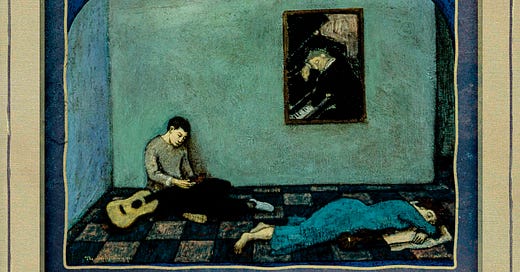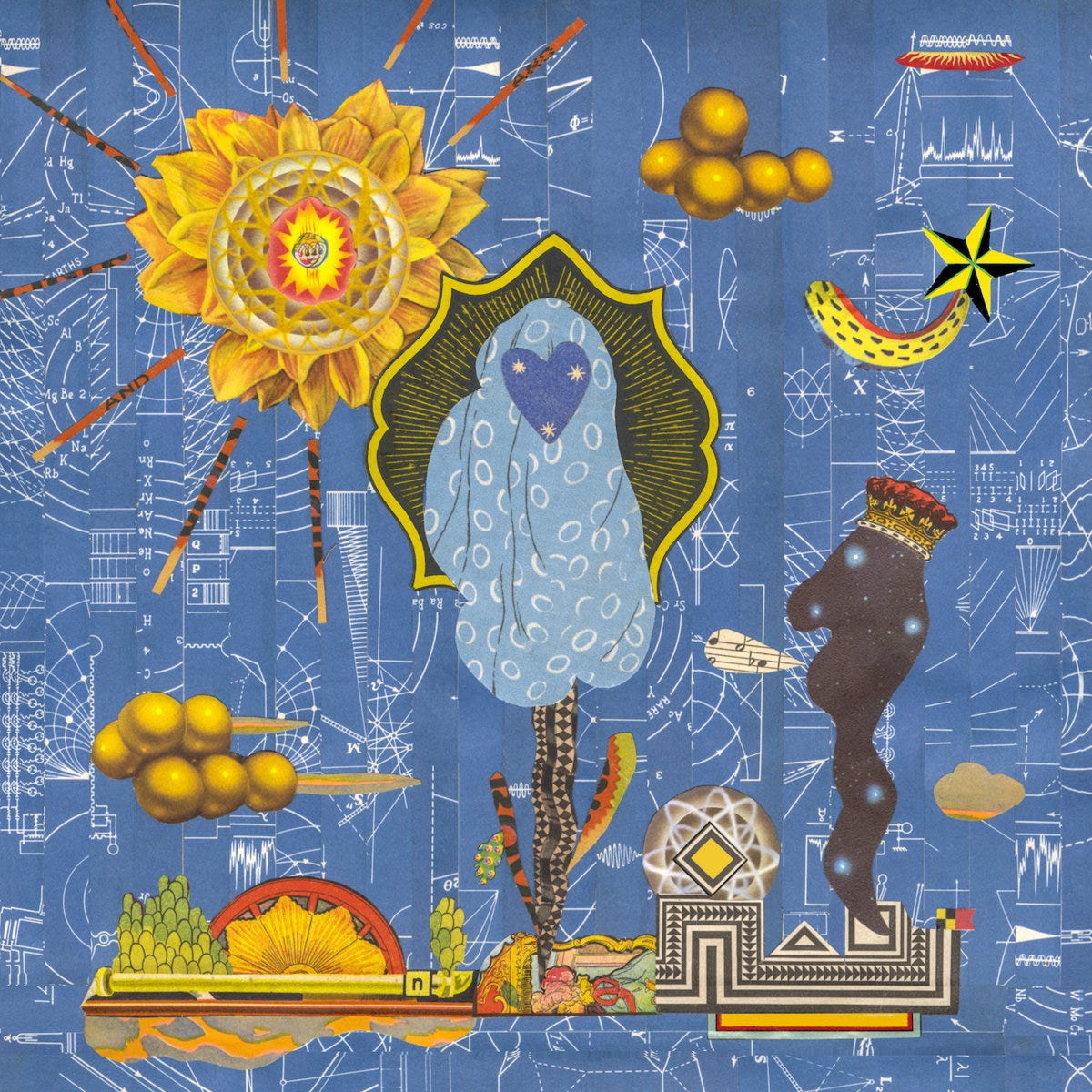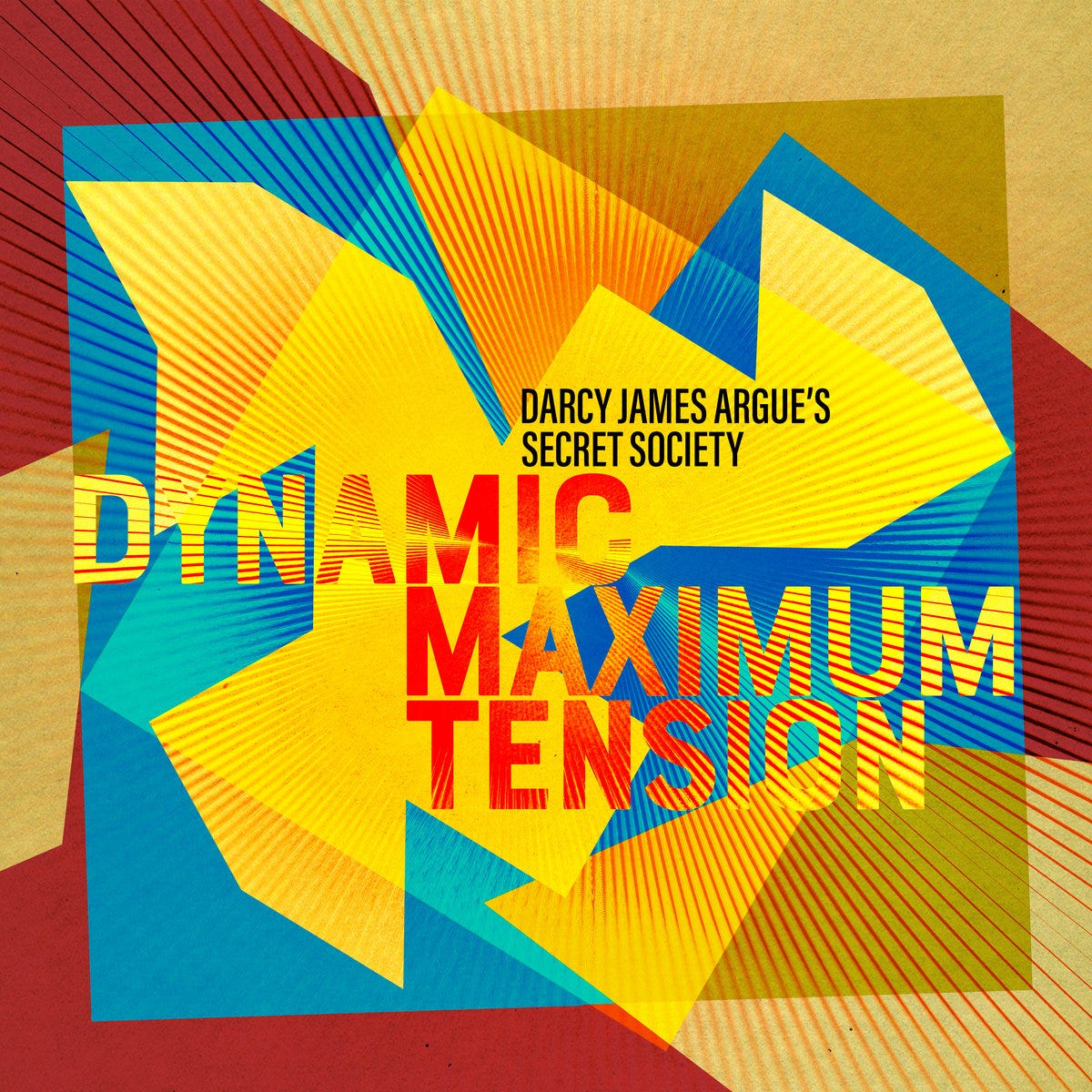Adventures in Listening, October 20, 2023: Tension and Release
Another homespun classic from Buddy & Julie Miller. A monstrously funky party record from Butcher Brown. And a punk-rock rebirth from Corrine Bailey Rae.
Buddy & Julie Miller - In the Throes
My friend Jeffrey Overstreet recently coronated Buddy and Julie Miller as the reigning king and queen of American roots music, a proclamation to which I can only imagine two possible responses: Buddy and Julie who, or yeah, tell me something I don’t know. Whether you’re a Millers newcomer or you’ve been on board since the beginning, you should know that I agree with Jeffrey, and think their new album In the Throes is pretty close to perfect. While it doesn’t quite have the same crackling energy as their self-titled record from 2001— not only their high watermark, but probably one of my five or 10 favorite country-adjacent albums of all time— it comes through with an appealingly scrappy, homemade energy, their reliably high standard of song craft, and more of those amazing harmonies between Buddy’s soulful twang and Julie eternally girlish alto. Julie takes practically all of the songwriting credits here, writing with her usual emotional directness: There’s a song called “I Love You” that doesn’t offer any tricks or gimmicks or metaphors, just pure, burning affection. Equally affecting is “The Painkillers Ain’t Workin,’” which could be a reflection on all the ways we try to to self-medicate but is probably a very literal, visceral diary entry from Julie’s long struggle with neuropathy. The latter song is a malestrom of punk-ish energy, one of a few jolts of raucous eccentricity that break up the album’s more laid-back aesthetic: Also check the warped blues of “I Been Around,” a battered-and-bent junkyard sculpture that other reviewers have likened to Yoko Ono or Mule Variations-era Tom Waits. The title song is one of those swaggering, Stonesy rockers that the Millers have excelled at as far back as “You Make My Heart Beat Too Fast,” kicking off with a thunderous drum beat that feels as purposeful as the one that launches “Like a Rolling Stone.” Speaking of Dylan, the elephant in the room is “Don’t Make Her Cry,” a stately ballad that Bob had a hand in writing; Julie finished it and Buddy finds a way to sing even the most snarky Dylan-isms (“sometimes your critics think they’re so justified!”) with a sense of compassion. But as far as the quieter numbers go, the standout is “The Last Bridge You Will Cross,” an elegy for John Lewis, performed here with Emmylou Harris and Sixpence None the Richer’s Matt Slocum. Not only is it painfully tender, but it rightly links Lewis’ lifelong civil rights advocacy to Christian faith— just another example of the Millers’ incredible gift for using their own Christianity not as the subject matter for every song, but as the lens through which all other subject matter can be viewed. They’re such a gift. Long may they reign.
Butcher Brown - Solar Music
The easiest way for me to describe Solar Music to you is with some quick shorthand: Think Robert Glasper’s Black Radio series, only rowdier, funkier, and less star-studded. Or for an even quicker shorthand, just call it the party album of the year. These 45 minutes are jam-packed with rhythmic adventure, from Latin grooves to pulsing disco. The influence of hip-hop looms large, with several tracks offering clattering beats and chest-pumping everyman raps. There are soulful R&B interludes, and, on the deliriously funky “Espionage,” a Hendrixian guitar meltdown from guest Charlie Hunter. Butcher Brown is ostensibly a jazz troupe, and while there’s little in the way of conventional swing here, the exploratory spirit of jazz permeates every groove and every horn solo, creating an unpredictable sequence that’s pulled together by its loose, swaggering vibe. For me, this is one of the year’s most delightful surprises— and one of its strongest doses of pure fun.
Corrine Bailey Rae - Black Rainbows
If you’re anything like me, you probably associate Corrine Bailey Rae with tuneful adult pop— not that there’s anything wrong with that. So I was surprised to learn that she came up playing in a punk band, just one of the disparate elements that catalyzed her stunning creative rebirth on Black Rainbows. It’s the more raucous tunes that first grabbed my attention— “Erasure” is a three-minute eruption of cacophonous anger and distortion, “New York Transit Queen” a pummeling, Ramones-style character sketch— but further listening reveals this to be about as wide-ranging and formally audacious as a 10-song album can be. “Earthlings” is an effectively rough-edged piece of house music; “He Will Follow You with His Eyes,” a playful piece of widescreen orchestral balladry. At almost nine minutes, the symphonic “Put it Down” pulls together several of the album’s diverse strands. Rae says she was inspired to make this music after spending time immersed in multi-disciplinary representations of Black life, and the resulting music feels suitably multi-faceted— empathetic in its humanity, proud in its creative and cultural roots, assertive in its politics. (Listen again to the ferocious lyrics on “Erasure.”) A tremendous album that completely changes everything I thought I knew about its auteur.
Darcy James Argue’s Secret Society - Dynamic Maximum Tension
My tastes in big band music tend to be pretty traditional— by which I mean Ellingtonian, with the occasional splash of Thad Jones and Mel Lewis. As far as contemporary big band leaders, none have captured my attention more than the hip, tasteful Darcy James Argue and his raucous Secret Society troupe. Their new one spans Bernard Herrman-esque intrigue (“Dymaxion”) and woozy Americana (“Last Waltz for Levon,” a folksy album highlight). If I have any complaint, it’s that I wish Argue would indulge in a little more boisterous swing, back-loaded here with the barn-burning “Single-Cell Jitterbug” and the irresistible vocal cut “Mae West: Advice.” But there’s really not a dud in the bunch. All in all, probably my favorite Secret Society record since Infernal Machines.








